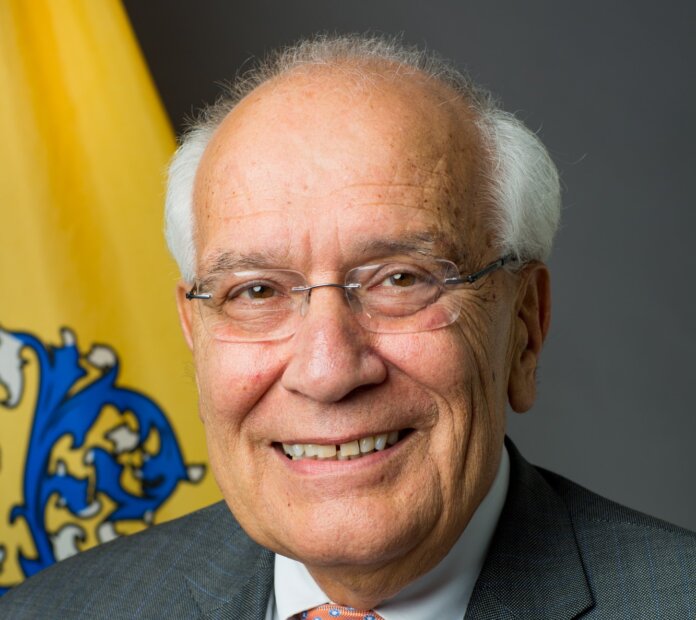The New Jersey Board of Public Utilities (NJBPU) has formerly accepted a report, entitled Grid Modernization Study: New Jersey Board of Public Utilities, which includes a full set of recommendations, and authorized the public release of the report. In recommending the board’s acceptance of the report, staff indicated that the report outlines a framework for modernizing the grid and its recommendations would significantly improve New Jersey’s interconnection rules.
The state’s grid modernization initiative included research into similar state programs and emerging technologies, organization and execution of a comprehensive series of stakeholder meetings, and data requests for specific information from New Jersey’s Electric Distribution Companies (EDCs), which all culminated in the report’s recommendations to modify certain interconnection standards. Modifying these standards will enable greater adoption of clean energy resources needed to meet New Jersey’s clean energy goals by improving how they are connected to the electric grid.
“This report and its recommendations are vital to the process of modernizing the grid so that our many new sources of clean energy like solar, as well as energy storage, can more easily connect now and into the future,” says NJBPU President Joseph L. Fiordaliso. “I would like to thank board staff and our consultant Guidehouse for their hard work on an extremely important topic, and to our stakeholder community who provided invaluable feedback throughout the process.”
Further, the board directed staff to release for public comment a draft of the proposed rule changes needed to implement recommendations 1 through 4 in the report that would modify the interconnection rules. These modifications would provide near-term relief from the issues that impede higher rates of interconnection approval for distributed energy resources (DER), such as solar and energy storage.
Staff has also been directed to initiate the analysis and stakeholder input process needed to kick start the rule making process for recommendations 5-9, which are longer term recommendations. These recommendations are generally more complex and will require additional analysis and stakeholder input prior to being incorporated into a second rulemaking proceeding. Some of these longer-term improvements may require legislative action.
The final report was developed by Guidehouse Inc., which developed the document through a robust public process, which included five stakeholder meetings over the last 12 months.
Near-term recommendations from the report include ensuring New Jersey is aligned with the latest grid interconnection standards of the Institute of Electrical and Electronics Engineers (IEEE). It recommends streamlining and automating the interconnection application process including an interconnection dispute resolution process. It also pushes to enhance hosting capacity methodology, hosting capacity and map data granularity, minimum update intervals, and presentation consistency. This would include the electric distribution companies (EDC) providing a uniform cost data guide for system upgrades.
The recommendations call for designing and implementing an EDC pre-application process in accordance with NJBPU requirements, which will provide the opportunity to expedite renewables and storage interconnection. The process should enable key information affecting project viability to be exchanged between the EDC and the customer prior to initiating a standard interconnection review.
Long-term recommendations from the report include NJBPU developing a steering committee and convene working groups and task forces to further reform the interconnection and grid modernization process. The steering committee should recommend tools and an approach for a “regulatory sandbox” to test for “fail or scale” of new technologies and processes.
Informed by a stakeholder process initiated by NJBPU, NJ EDCs should implement a streamlined flexible queue process across EDCs which would include a mechanism to prioritize a “first ready, first through” approach. This would support more viable projects and avoid clogging the queue for Level 1, Level 2 and Level 3 projects, while ensuring equity and fairness in the queue.
NJBPU should establish a steering committee and working groups to research and recommend additional cost recovery options beyond the legacy cost-causer approach. Alternatives, which comply with the concept of prudently incurred costs and do not systematically favor private, unregulated developers at ratepayers’ expense should be researched.
NJBPU should direct the EDCs to develop integrated distribution plans (IDP) per the NJ Energy Master Plan (NJEMP) and should provide direction to the EDCs regarding information to be included as minimum filing requirements in their IDP / IDER (integrated distributed energy resource) plans. NJBPU should provide a rulemaking that non-renewable fuel sources should be separately metered from renewable sources, and cannot be combined for net metering purposes. This will allow renewable generation owners to receive full credit without penalty for co-located non-renewable sources, and without sacrificing resource sufficiency.
Proposed rule changes for the recommendations will be submitted to the Office of Administrative Law (OAL) for publication in the New Jersey Register. The board will consider public comments received before adopting final rule changes and publishing them in the New Jersey Register. The rule proposal for the near-term recommendations will be submitted to OAL after receiving public comment on the draft rule language. The rule proposal for the long-term recommendations will be developed following a robust stakeholder engagement process and submitted when the proposal is developed.




